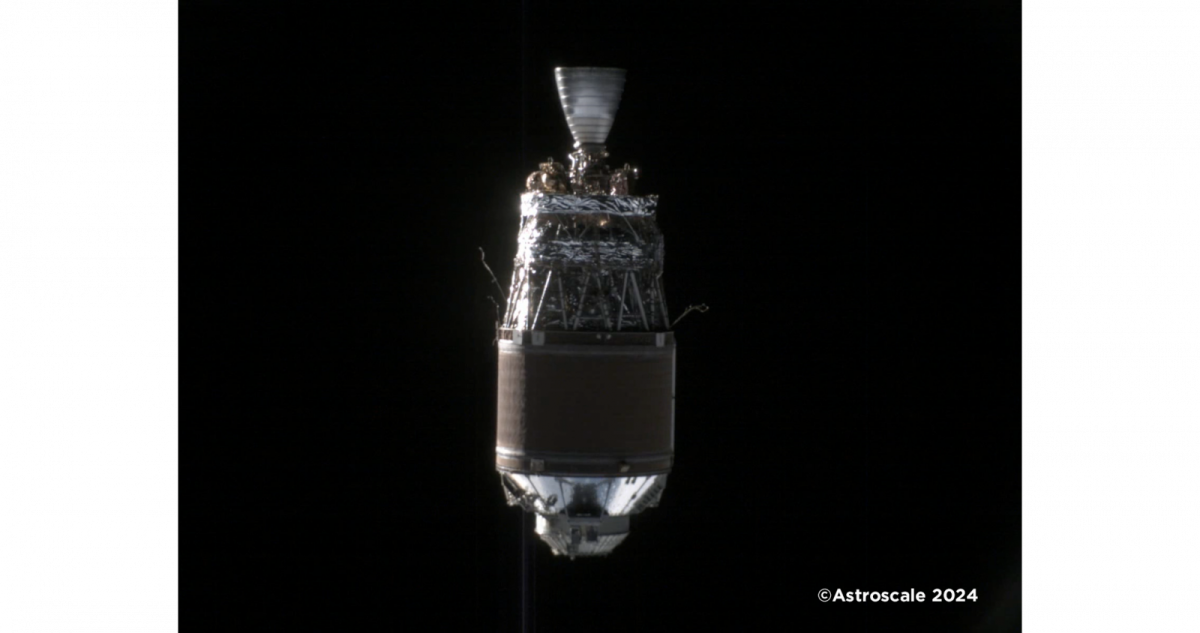Astroscale’s space junk observation satellite has moved within striking distance to a discarded rocket upper stage that’s been floating around Earth for nearly 20 years, taking close-up pictures — preliminary to actually deorbiting the object in a future mission.
The company released an image captured by its satellite from a distance of just 50 meters (164 feet) on June 14, the most recent milestone in an ambitious program that aims to eventually remove debris from orbit. During this first phase of the campaign, the Active Debris Removal by Astroscale-Japan (ADRAS-J) satellite is demonstrating safe approach maneuvers, called rendezvous and proximity operations, with the target object, as well as obtaining images and other data about it.
The 150-kilogram ADRAS-J was selected by the Japanese national space agency for this first phase of its Commercial Removal of Debris Demonstration Project (CRD2) back in 2020. Astroscale was also selected for the second phase of the project, a contract that was announced in April, in which the object will be grappled and deorbited.
ADRAS-J launched on a Rocket Lab Electron rocket in February. Since then, it has been slowly moving closer and closer to the discarded object — an 11-meter-long upper stage from a Japanese H-IIA rocket that ended up in low Earth orbit after launching in 2009. Notably, the rocket stage does not broadcast its location, so Astroscale had to use ground-based techniques to find its approximate position, then additional data gathered in orbit, to determine the best approach trajectory.
In addition to the images, ADRAS-J is also collecting data on the object, like its spin rate and the overall condition of the structure. In the next phase of the mission, Astroscale is aiming to execute even more controlled close approach maneuvers, including flying around the object, to capture additional images of the upper stage. At the end of the mission, ADRAS-J will transition to a safe orbit to avoid collision with the piece of space junk.
Astroscale started trading on the Tokyo Stock Exchange Growth Market earlier this month. The company, which has offices in the U.S., United Kingdom, France and Israel, is developing a suite of spacecraft to manage other satellites and craft in orbit, whether active or defunct. That includes life extension services for large satellites in geostationary orbit or “end of life” services for commercial satellites in low Earth orbit that have reached the end of their mission.
Astroscale shared additional images captured by ADRAS-J on YouTube. Check them out below.

